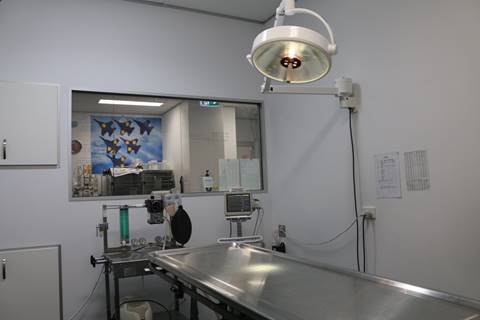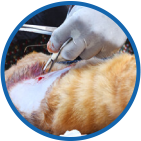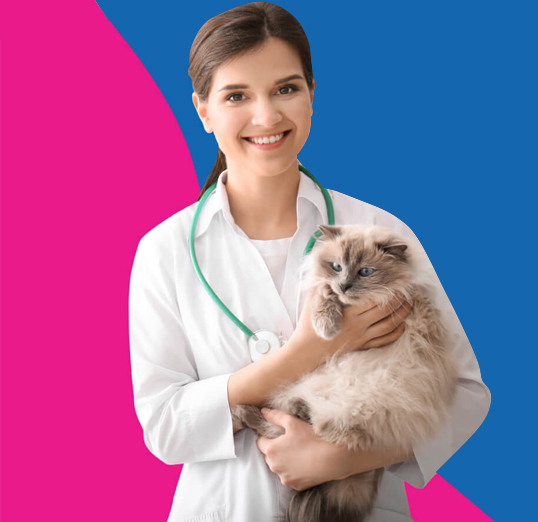Surgical Services
Our hospital is an ASAV Accredited Animal Hospital of Excellence.
This means we maintain the highest standards of care and practice gold-standard medicine. We are well equipped to perform most surgical procedures, with in-house preanesthetic blood machines, modern anaesthetic machines, digital respiratory and cardiac monitors, dedicated anaesthetic monitoring nurses and fluid therapy pumps.
The surgical bed is also heated for the comfort and wellness of our patients!
Our surgical area is completely sterile and we use the safest anaesthetics practices very similar to an operating theatre in a human hospital with state-of-the-art monitoring equipment monitors respiration, ECG, blood pressure and oxygen saturation.

Our veterinarians perform a vast range of operations such as:
- Desexing (spay and castrates)
- Caesareans
- Lump and tumour removal
- Orthopaedic Surgery
- Abdominal Surgery
- Soft tissue Surgery
- Ophthalmic Surgery
- Dentistry
- Biopsies
- Emergencies and Wound Stitches
- Specialist Referrals
- Diagnostic Imaging
Digital Radiography – Digital imaging results allows superior x-rays of our patients in a matter of minutes, allowing for a quick diagnosis.
Ultrasonography – We routinely perform pregnancy ultrasounds and other non invasive diagnostic tests. Find all about our Ultrasound Service Here.
If your pet needs surgery in the Bundaberg region in Queensland, you can discuss your options with us today.
Call us today on 07 4151 3550 or book online.








